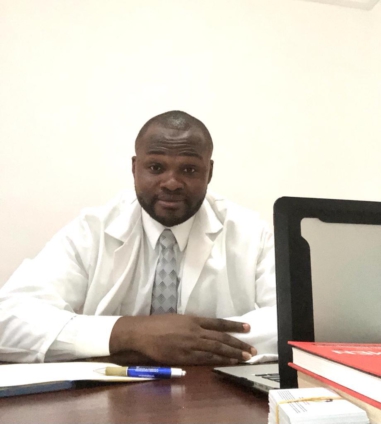The Public Health Alliance International Ghana (PHAIG) has called for a more collaboration/engagement with stakeholders on the issue of vaccine hesitancy in a bid to mitigate the misinformation and mistrust associated with vaccine use.
Over the past two years, the entire global community has been grappling with the many issues regarding Covid-19, which is a novel viral pandemic and as such information and research around it is rapidly evolving.
PHAIG says it has observed with grave concern a perceived vaccine hesitancy among the public and believes a multi-pronged approach which will require a lot of stakeholder engagements and collaboration between government institutions mostly the health and education sectors and various NGOs and civil society organizations to work together to ensure the availability of adequate information and research findings in the public domain on the safety and efficacy of these vaccines as well as throwing some light on some of the few side effects and how to manage them is the way to go.
Dr. Samuel Nuamah, co-founder and Vice-President of PHAIG who made the call in an interview with the media said PHAIG seeks to conduct studies on the risk factors and indicators of the vaccine hesitancy with a focus on the general public’s perspective on vaccine mandate and its acceptability.
“I’d say that research on the subject especially the ones conducted within our sub region are rather scanty and mostly preliminary. Based on the research I’ve come across, the major issues have been those of mistrust and misinformation. The mistrust towards COVID-19 vaccines has been predicated on the lack, inadequacy or inconsistency of information within the public domain”.
“Regrettably a lot has to do with access to social media and people relying on what information is available out there. And of course as we all know bad news sells and travels very fast. Those are unfortunately the more projected and pronounced in the news outlets. In certain instances, we have a small section of the scientific community who with little to no research come out in the public to propagate counter information on these vaccines which further heightens the already pervading mistrust.
Dr. Nuamah was of the view that mandatory vaccination is not a new phenomenon. “It was employed as far back as early 1800 in the era of Napolean Bonaparte during the smallpox pandemic. And I believe mandatory vaccination may be as relevant today as it was back then depending on how life-threatening a pandemic or disease is.
However, as a country, we need to tread cautiously so as not to infringe on the rights of people in our quest to save their right to protection against the disease.
This is why it has become crucial that more tailored research be done to ascertain the real reasons why Ghanaians may or may not want to subscribe to mandatory vaccination and if at all those reasons can be addressed to ensure a lot more progress and possible conclusion on the subject matter.
He however commended the Ghana Health Service for making some strides in getting information on Covid-19 on the various social media outlets but urged them to employ more of our traditional media sources like the television and radio to help direct the general public to these sources of information, stressing that availability of the information is just one part of information dissemination; accessibility is the other.
He, therefore, called for support and collaboration from individuals, government agencies, and other organizations to help CSOs such as PHAIG with the resources to undertake more health projects and research in order to bring more visibility to the many pertinent health issues in Ghana and within the sub-region.
Dr. Nuamah also entreated the general public to be wary of information obtained from social media and always seek to ascertain the veracity and authenticity of information about the disease by checking on the more credible sources such as the Ghana Health Service, WHO and CDC.
Public Health Alliance International Ghana (PHAIG) is an independent not-for-profit Health Think Tank that seeks to address the many issues of health in Ghana and throughout the Sub-Sahara African region through evidence-based research, health policy analysis and stakeholder engagements.
Latest Stories
-
Investigators find cockpit voice recorder from crashed Air India flight
5 minutes -
Club World Cup: Delap makes debut as Chelsea win in front of empty seats
16 minutes -
Retirement age of 70 is fine – Justice Adjei
18 minutes -
Chris Brown jokes about ‘nice’ jail as he starts UK tour
28 minutes -
Juror dismissed in Diddy trial over ‘inconsistencies’
39 minutes -
Don’t allow Executive or Legislature to encroach on judicial independence – Justice Adjei
2 hours -
Bibiani Goldstars crowned champions, squad rewarded by betPawa in bonus payout
2 hours -
Capping Supreme Court judges won’t be helpful – Justice Suurbaareh
2 hours -
Mahama is Ghana’s most prepared President – Gabby Otchere-Darko
2 hours -
Samer Chedid succeeds Mauricio Alarcón as CEO of Nestlé Central and West Africa
2 hours -
Stephen Ntim takes temporary break as NPP Chairman due to health concerns
3 hours -
Abolish ‘Additional Judge’ practice in lower courts – Justice Dennis Adjei urges
3 hours -
District assembly elections are already partisan – Sir Dennis Adjei urges reform
4 hours -
Africa World Airlines reschedules Accra–Ouagadougou route launch to 1st July
4 hours -
Mahama vows to reignite dream of Bukom Boxing Academy
4 hours

